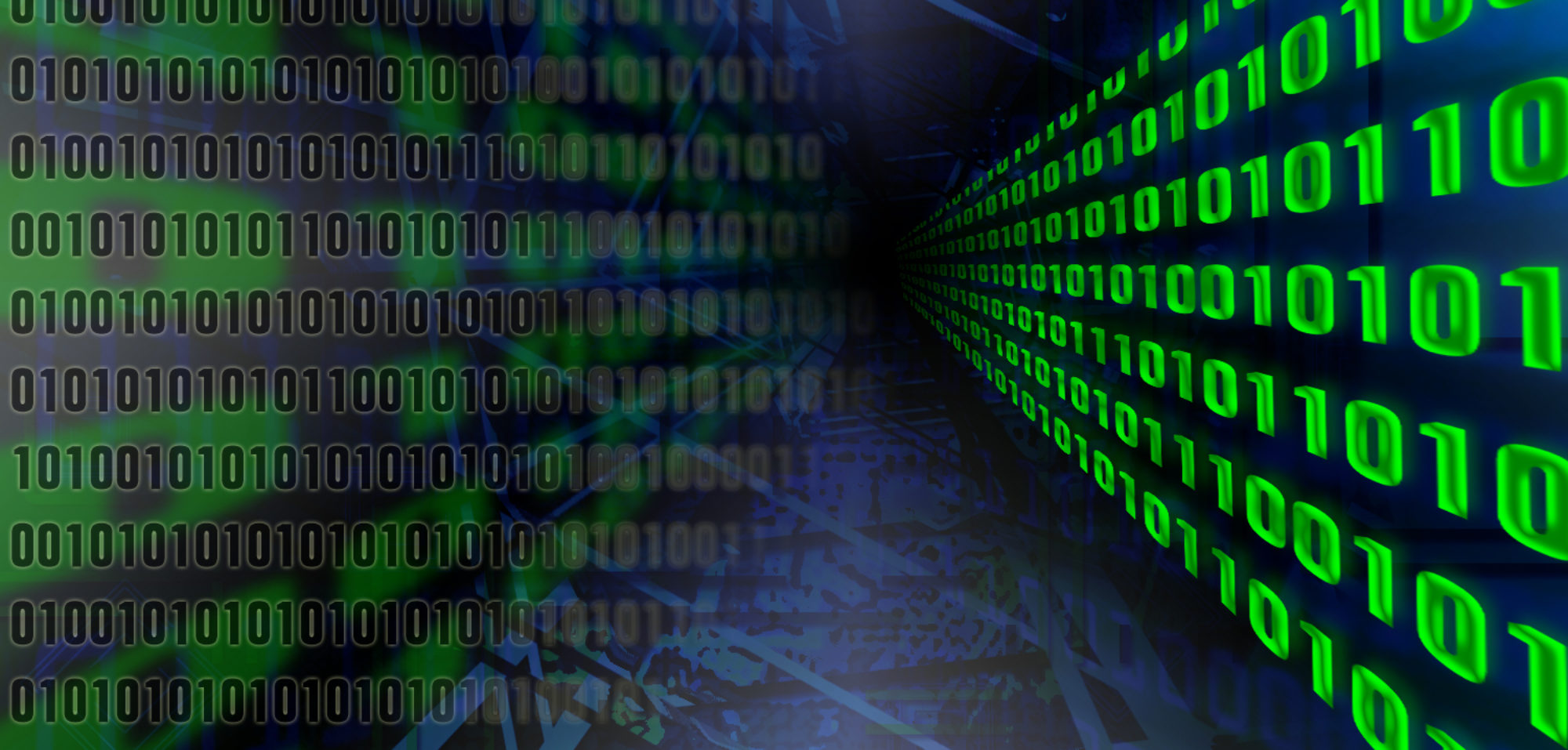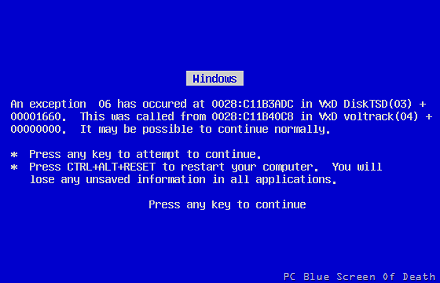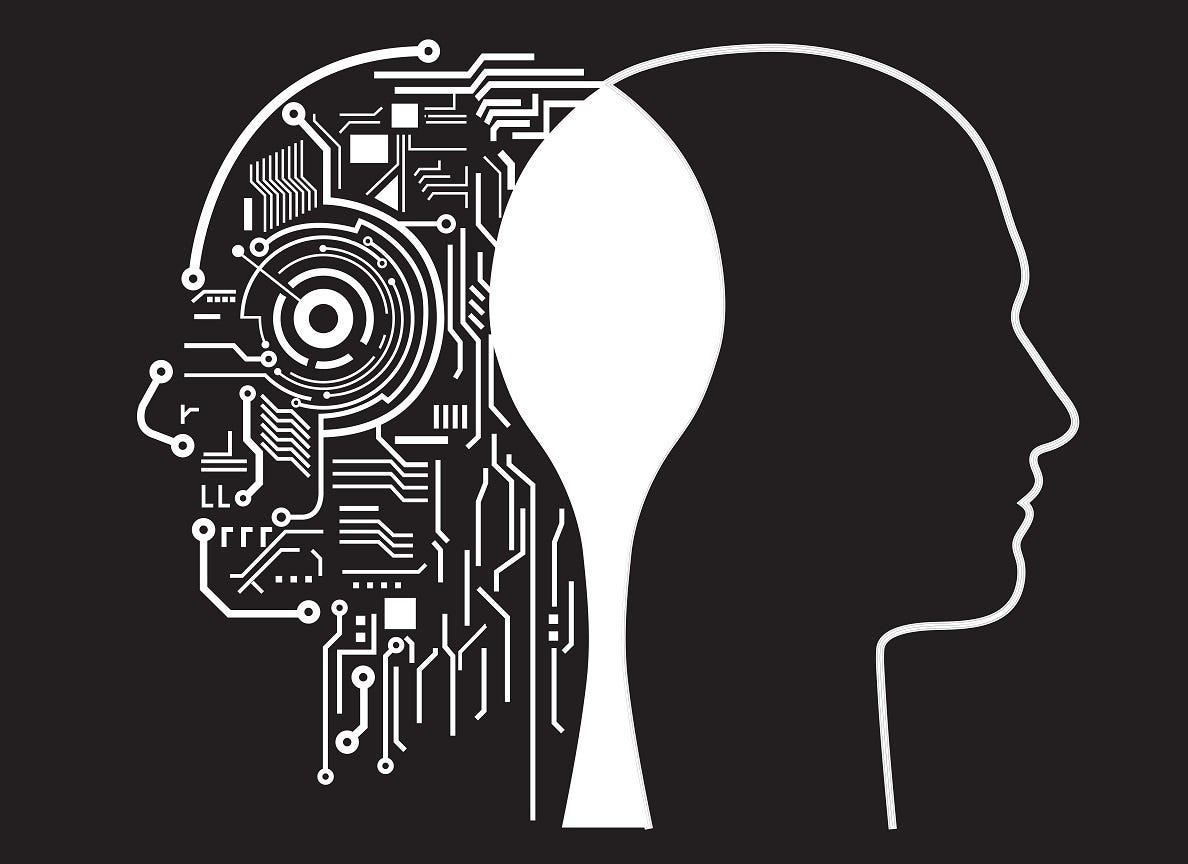Monday, December 24, 2018
Google is tracking Santa
We all know that Google probably has a pretty good idea where we are most of the time. Well, this year they will be tracking Santa's movements as he delivers presents to all the good children around the world. Follow Santa's journey as he sets of just before midnight on Christmas Eve with Google's Santa Tracker. Happy holidays everyone.
Tuesday, December 18, 2018
Teenager Finds Classical Alternative to Quantum Recommendation Algorithm
A teenager from Texas has taken quantum computing down a notch. In a paper posted online earlier this month, 18-year-old Ewin Tang proved that ordinary computers can solve an important computing problem with performance potentially comparable to that of a quantum computer. Read more about this in Quanta Magazine.
Tuesday, December 11, 2018
The 20 best tech gadgets of 2018
It's nearly Christmas, perhaps you want to buy a gift for someone, or for yourself. Here's a list of the 20 best tech gadgets of 2018 compiled by the Guardian.
Thursday, December 6, 2018
Computer Science wins major international award
John Hosking, The Dean of Science at The University of Auckland, writes that: "Peerwise, developed by Computer Science’s Paul Denny, has won the QS Reimagine Education 2018/19 Award, which includes a $US 25,000 prize. Peerwise was the overall winner and won the ICT Tools for Teaching and Learning category in a competition that attracted 1,184 teams to submit portfolios of their work each of which was judged according to four criteria: Pedagogical approach, Engagement and reach, Measurable impact, and Scalability.
This is very well deserved recognition for Paul and the Peerwise team, who have clearly demonstrated that the Peerwise approach enhances learning outcomes for students.
Peerwise is in use in 80 countries by more than 0.5M students."
This is very well deserved recognition for Paul and the Peerwise team, who have clearly demonstrated that the Peerwise approach enhances learning outcomes for students.
Peerwise is in use in 80 countries by more than 0.5M students."
Wednesday, November 28, 2018
NASA's inSight probe lands on Mars
I'm a big fan of NASA's space exploration program using probes and rovers. Yesterday their latest probe, InSight, successfully landed on Mars. Landing on Mars isn't easy, almost half the missions to Mars have failed during landing. InSight is already sending photos back to Earth (see above). You can follow the mission on NASA's website here.
Wednesday, November 14, 2018
Voice of HAL 9000 actor dies
Douglas Rain, the actor best known for voicing the homicidal HAL 9000 computer in Stanley Kubrick's film 2001: A Space Odyssey, has died aged 90. HAL 9000 is probably the most famous computer in Science-Fiction. The movie was prescient is showing that speech would be the primary method that we would use to communicate with computers.
Wednesday, November 7, 2018
Film fans see red over Netflix ‘targeted’ posters for black viewers
We're used to the idea of Netflix and other online services, recommending us content based on our viewing history. What you might be surprised to learn is that Netflix is altering the promo images of shows based on our ethnicity. In the image above a white viewer would see the image on the left showing the show's leading actors. A black viewer would see the image on the right where it looks like the show stars Taye Diggs and Lucy Liu who are minor players. The Observer has an interesting article on this story. We can't even accuse Netflix of algorithmic bias since this seems to be deliberate!
Wednesday, October 31, 2018
Vitamin Pills: Miracle or Myth?
The BBC's flagship science documentary series, Horizon, has just screened a doco called "Vitamin Pills: Miracle or Myth?" All of us like to be healthy and many people take supplements in the belief they are good for them. This show examines the scientific evidence and comes to the conclusion that for most people supplements are not needed.
Available from the usual places.
Available from the usual places.
Sunday, October 14, 2018
Bob Doran - R.I.P.
I'm really sad to have just learned that my colleague Bob Doran has died. He had been fighting cancer for many years and has finally succumbed. He was a founder of my Computer Science department in 1982 and in recent years was the curator of our excellent computer history museum, a passion that I shared with him. Though, I have to say I wasn't as interested in the history of the New Zealand Tote as he was. He was a regular contributor to this blog on all aspects of computing history and I will miss him dearly. My sincere condolences to his wife, Joyce, and his family.
Tuesday, October 2, 2018
'The discourse is unhinged': how the media gets AI alarmingly wrong
In June of last year, five researchers at Facebook's Artificial Intelligence Research unit published an article showing how chatbots can simulate negotiation-like conversations. They also showed that the chatbots sometimes talked with each other in a non-standard form of English they seemed to have invented. The media jumped on this and started likening the event to the rise of Skynet in the Terminator movie. Zachary Lipton, an assistant professor at the machine learning department at Carnegie Mellon University, watched with frustration as this story transformed from “interesting-ish research” to “sensationalized crap”. The Guardian has an interesting article on how AI is commonly reported.
Wednesday, September 19, 2018
Welcome to the Myra Cohen Department of Computer Science
As New Zealand celebrates it's historic decision, 125 years ago, to give women the vote my department has renamed itself, for one week, the Myra Cohen Department of Computer Science after an illustrious female graduate, Myra Cohen a friend of mine. Women have always played an important role in the development of Computer Science. Two of my favourite heroines would be Ada Lovelace and Grace Hopper.
Wednesday, September 12, 2018
Māori and Machine Learning
Māori and Machine Learning, might not seem like a natural pairing. However, for Māori Language Week Spark have released Kupu, an app for your smartphone that will help you improve your vocabulary. Take a photograph of an object and the app will use Google's object recognition system to recognise it and then tell you what it is in Māori. It will speak the word as well so you can hear the correct pronunciation. Kupu is available for iOS and Android.
Friday, August 31, 2018
Memo That Allowed IBM's Women to Get Married
My colleague, Bob Doran, brought this piece of computing history to my attention. Imagine a time when women employed by IBM had to quit when they got married! This article in The Atlantic recounts one woman's experience of, what now seems, a bizarre situation. Thankfully times have moved on.
Saturday, August 25, 2018
Use your library
I'm a huge fan of my local library and am really puzzled that people will spend their money on buying books they will probably only read once when they can read the same books for free from the library. I travel a lot and I love my e-book reader on my iPad; being able to travel with a dozen books that weigh nothing and take up no space is just great. Auckland Council Library has for several years provided e-books that you can download to your device and read for free, but the service wasn't easy to use. However, this has all changed with their new app, Libby, available on Android and iOS. The app makes browsing and searching for books simple and then you can download and read them directly, "easy as", as they say in New Zealand. Moreover, they have another app, RBDigital, that provides you free access to 100s of magazines. So go and join your local library, read more and save money!
Thursday, August 16, 2018
The 2018 Top Programming Languages
IEEE Spectrum has published its fifth annual interactive ranking of the top programming languages. As they point out: "because no one can peer over the shoulders of every coder out there, anyone attempting to measure the popularity of computer languages must rely on proxy measures of relative popularity." Auckland University's very own R language is in 7th place reflecting the growing popularity of data science and analytics.
Thursday, August 9, 2018
Half a million page views!
This blog has just passed 500,000 page views! Now I realise that not all of those views are individual readers, many will be web crawlers and bots, but those are the only stats I have. The most viewed post is Turing and the Apple logo (49,030 views), with The largest prime number is... (19,815 views) coming in second. Now to hit 1 million.
Thursday, August 2, 2018
Top 20 Python AI and Machine Learning Open Source Projects

Dataquest has compiled a very useful resource for new data scientists, as they say: "Getting into Machine Learning and AI is not an easy task. Many aspiring professionals and enthusiasts find it hard to establish a proper path into the field, given the enormous amount of resources available today. The field is evolving constantly and it is crucial that we keep up with the pace of this rapid development. In order to cope with this overwhelming speed of evolution and innovation, a good way to stay updated and knowledgeable on the advances of ML, is to engage with the community by contributing to the many open-source projects and tools that are used daily by advanced professionals." You also might want to take a look at the book "Python: Machine Learning."
Tuesday, July 24, 2018
Artificial intelligence will be net UK jobs creator
A recent report from PricewaterhouseCoopers has argued that AI would create slightly more jobs (7.2m) than it displaced (7m) by boosting economic growth in the UK. The firm estimated about 20% of jobs would be automated over the next 20 years and no sector would be unaffected. This counters a lot of doomsayers who have predicted that AI will potentially decimate employment. In some sectors these pessimists are not wrong: PWC predicts that transportation and storage will lose 38% of its jobs to AI. However, PWC are predicting that these job losses will be more than countered by gains in health and social work, education, professional and IT work, and other service sectors. You can read PWC's full report here.
Tuesday, July 17, 2018
Mega AI conference in Stockholm, Sweden
A massive gathering of AI academics and professionals is taking place in Stockholm, Sweden. The 27th International Joint Conference on Artificial Intelligence and the 23rd European Conference on Artificial Intelligence, the premier international gathering of researchers in AI! IJCAI-ECAI-18 is part of the Federated AI Meeting (FAIM) that takes place at Stockholmsmässan in Stockholm July 9-19. The other conferences running alongside include AAMAS, ICML, ICCBR and SoCS. The World Computer Chess Championships will also take place in parallel.
Wednesday, July 11, 2018
They promised us...
The Guardian newspaper has been running a series of articles under the banner "They promised us..." The articles explore why we don't have flying cars, ray guns, hoverboards, teleportation (like in Star Trek), jetpacks and several other things SciFi has promised to deliver. So if you're disappointed in our lack of progress read these articles to find out why.
Tuesday, July 3, 2018
So, modern programmers, you think that you have it tough
Garry Tee, who has long been associated with University of Auckland Mathematics and Computer Science Department is going to fully retire this August, aged 86. Garry topped the NZ scholarship exams in 1948 and graduated from the University of Auckland with a First class Masters degree in Mathematics. Among his many adventures, he worked for English Electric at Whetstone, Leicestershire in the UK from 1958 to 1964 as a Mathematician/programmer using the DEUCE computers. These were direct descendants of Turing’s 1946 designs for the ACE.
To start with, Garry programmed the DEUCE in binary machine language as a sequence of 32-bit words. Working programs were published as research reports and, luckily, Garry has preserved some of these. Below is an extract from one of his programs. The instruction code words were expressed as 4 decimal fields, with the card punch operators converting them mentally to binary, in passing. Turing predicted in 1945 that programming would be done by Mathematicians. That was certainly a skill needed for the DEUCE!
To start with, Garry programmed the DEUCE in binary machine language as a sequence of 32-bit words. Working programs were published as research reports and, luckily, Garry has preserved some of these. Below is an extract from one of his programs. The instruction code words were expressed as 4 decimal fields, with the card punch operators converting them mentally to binary, in passing. Turing predicted in 1945 that programming would be done by Mathematicians. That was certainly a skill needed for the DEUCE!
Thursday, June 28, 2018
AI Is Making Hardware Sexy Again
Another hardware post, although this time a bit more general than a new supercomputer. Almost 20 years ago at an AI conference in Austin, Texas, I remember a discussion revolving around how great it would be if we AI people had the processing power that game designers insisted on for their games to run. If gamers could insist that their computers had powerful game cards, why couldn't AI insist on dedicated AI cards? We never got the AI cards and so we learned to use GPU's to enable our algorithms to run in reasonable time. However, now things are changing and increasingly hardware is being tailored to AI's needs as this article in Forbes makes clear.
Thursday, June 21, 2018
A new supercomputer
MIT's Technology Report has introduced the world's most powerful supercomputer as "tailor-made for the AI era" Since 2013, Chinese machines have occupied the number one slot in rankings of the world's most powerful supercomputers. Now America is back on top again. The computer, called Summit, occupies an area the size of two tennis courts and carries 4,000 gallons of water a minute through its cooling system to carry away about 13 megawatts of heat. It performs at 200 petaflops — 200 million billion calculations a second!
Friday, June 15, 2018
iPad or Kindle Fire
 |
| iPad & Kindle Fire |
I decided to buy a Kindle Fire to compare it to my iPad partly because it's so cheap. The Kindle is $59.99 (USD) compared to an iPad for $329 (USD). In other words, the iPad is 5.5 times more expensive than the Kindle! In fact, you can buy a Kindle for less than the iPad's optional cover! So how does the Kindle compare? Well, the Kindle isn't as fast as the iPad, the touchscreen isn't quite as responsive and its backlight isn't quite as bright. The battery life is fine easily lasting a day of use.
Amazon has its own app store for the Kindle, but it doesn't stock all of the apps that the Apple app store or Google Play for Android devices stock. However, Amazon doesn't advertise this, but since the Kindle is running Android as its OS you can quite easily (5 mins) install Google Play on your Kindle (just Google it) and then you have access to all Android apps. This means you can install all the productivity apps and games you are familiar with.
Finally, although the Kindle has less built-in memory than the iPad, 32GB max vs. 128GB (add $100 to the iPad's price for this) you can easily upgrade the Kindle's storage by using a micro SD card ($38.20 for a 128GB card). In conclusion, the Kindle Fire is a perfectly usable tablet. If work was paying for my new tablet I'd insist on the iPad, but if I was paying myself I'd buy the Kindle Fire and spend the $269 I'd save on something else.
Friday, June 8, 2018
Tips to improve your online privacy
Since the Facebook/Cambridge Analytica scandal a few months ago online privacy has become a popular topic. The New Zealand Herald recently published some very practical tips you can use to improve the privacy of some popular apps. Read about the tips here.
Thursday, May 31, 2018
Yet another GDPR email
You may have noticed that in the last week your inbox has been flooded with emails from almost every company you've ever interacted with online. All of them wanting to update their terms of use and privacy policy. Many companies have been resorting to humour to try and get us to open these emails. However, as The Guardian has pointed out "... legal experts have argued that many of these emails are unnecessary, and may even be illegal under the new data protection laws." If you don't know what has caused this burst of email activity it's due to a new EU law - the EU General Data Protection Regulation (GDPR) is the most important change in data privacy regulation in 20 years.
Tuesday, May 22, 2018
Can we be friends with robots?
Social robots are now being made to assist us in our daily lives in our homes and workplaces. These robots typically look humanoid and are designed to display signs of attention, cognition and emotion. This lecture will discuss research on how people feel about living with such robots, and the benefits and harm robots may bring.
The talk will draw on a series of New Zealand studies examining how people respond to robots in their own homes and in healthcare settings for long periods. People’s attribution of mind to robots and their feelings of companionship with robots will be a particular focus.
Drinks and nibbles will be served from 6pm at 260.088 Level 0 Foyer, Owen G Glenn Building University of Auckland. The Lecture commences at 6.30pm.
Find out more information about the Gibbons Lecture Series.
If you cannot attend the lecture you can watch it live or later here.
Monday, May 14, 2018
Will robotic vision ever fully replace human vision?
Associate Professor Patrice Delmas from the Department of Computer Science, University of Auckland is giving a free public lecture this Thursday, May 17.
In this talk, Patrice will introduce the topic of computer vision, its current status and the many challenges that have been faced. He will then discuss some parallels between human vision and computer vision, and the major differences in capability. Finally, he will lean on his experience to describe a wide range of real-world problems, attempted solutions and ensuing failures or successes, in the context of the New Zealand economy and environment.
Drinks and nibbles will be served from 6pm at 260.088 Level 0 Foyer, Owen G Glenn Building University of Auckland. The Lecture commences at 6.30pm.
Find out more information about the Gibbons Lecture Series.
If you cannot attend the lecture you can watch it live or later here.
In this talk, Patrice will introduce the topic of computer vision, its current status and the many challenges that have been faced. He will then discuss some parallels between human vision and computer vision, and the major differences in capability. Finally, he will lean on his experience to describe a wide range of real-world problems, attempted solutions and ensuing failures or successes, in the context of the New Zealand economy and environment.
Drinks and nibbles will be served from 6pm at 260.088 Level 0 Foyer, Owen G Glenn Building University of Auckland. The Lecture commences at 6.30pm.
Find out more information about the Gibbons Lecture Series.
If you cannot attend the lecture you can watch it live or later here.
Monday, May 7, 2018
Robotics research in New Zealand - free public lecture
Mike Shatford, Managing Director of Design Energy Limited, Christchurch is giving a free public lecture this Thursday, May 10 at 6:30pm. Mike's talk aims to close the loop between academia and industry; reporting on successes – where, and how, robotics is serving our target market, and where there are gaps and opportunities for both the originators of new technology and the end-users it will serve.
Drinks and nibbles will be served from 6pm at 260.088 Level 0 Foyer, Owen G Glenn Building University of Auckland. The Lecture commences at 6.30pm.
Find out more information about the Gibbons Lecture Series.
If you cannot attend the lecture you can watch it live or later here.
Drinks and nibbles will be served from 6pm at 260.088 Level 0 Foyer, Owen G Glenn Building University of Auckland. The Lecture commences at 6.30pm.
Find out more information about the Gibbons Lecture Series.
If you cannot attend the lecture you can watch it live or later here.
Monday, April 30, 2018
Robotics research in New Zealand - free public lecture
Professor Bruce MacDonald, Department of Electrical and Computer Engineering, Faculty of Engineering, University of Auckland will give a free public lecture on May 3rd 2018 at 6:30pm, Venue: 260.092 (Owen G Glenn Building 3), Level 0, University of Auckland.
Bruce says: "We are constantly being told that robotic technology is soon going to dramatically change our lives. Indeed, it is true that robots, AI, machine-learning and automation have become much more affordable and capable in recent years. With less fanfare, at the same time, farms, factories, homes and offices have felt a strong need to automate some tasks that are currently done manually. As well as machinery, this may involve measurement and monitoring, helping humans make decisions or taking over some parts of decision-making. This presentation will describe international trends and some of the ongoing work and future directions for robotics research in New Zealand."
Bruce says: "We are constantly being told that robotic technology is soon going to dramatically change our lives. Indeed, it is true that robots, AI, machine-learning and automation have become much more affordable and capable in recent years. With less fanfare, at the same time, farms, factories, homes and offices have felt a strong need to automate some tasks that are currently done manually. As well as machinery, this may involve measurement and monitoring, helping humans make decisions or taking over some parts of decision-making. This presentation will describe international trends and some of the ongoing work and future directions for robotics research in New Zealand."
Drinks and nibbles will be served from 6pm at 260.088 Level 0 Foyer, Owen G Glenn Building. Lecture commences at 6.30pm.
Find out more information about the Gibbons Lecture Series.
Thursday, April 19, 2018
Data as labour
I was interviewed for the National Programme on Radio New Zealand recently. "The relationship between internet users and internet companies is not one-sided. We provide the companies with data they need to create better programmes. And as artificial intelligence use increases so too does the amount of data they need. And that can only be provided by internet users like you and me. A new economics paper has suggested that because of this, we should be paid for what we give away.
You can listen to the interview here.
You can listen to the interview here.
Sunday, April 15, 2018
Free public lectures in Auckland
The annual free public Gibbons lecture series will take place again this May. This year's theme is robotics. News concerning robots, the tasks that they are able to perform and how they are expected to interact with humans, is widespread. Our Gibbons Lectures' speakers tackle this topic on 3, 10, 17 and 24 May. Join us for refreshments before each lecture from 6pm at: The University of Auckland 260.088, Level 0 Foyer, Owen G Glenn Building.
3 May – Robotics research in New Zealand
Bruce MacDonald
Professor in the Department of Electrical and Computer Engineering
Faculty of Engineering
The University of Auckland
10 May – Robotics in industry
Mike Shatford
Managing Director
Design Energy Limited
Christchurch
17 May – Will robotic vision ever fully replace human vision?
Patrice Delmas
Associate Professor in the Department of Computer Science
Faculty of Science
The University of Auckland
24 May – Can we be friends with robots?
Elizabeth Broadbent
Associate Professor in the Department of Psychological Medicine
Faculty of Medical and Health Sciences
The University of Auckland
3 May – Robotics research in New Zealand
Bruce MacDonald
Professor in the Department of Electrical and Computer Engineering
Faculty of Engineering
The University of Auckland
10 May – Robotics in industry
Mike Shatford
Managing Director
Design Energy Limited
Christchurch
17 May – Will robotic vision ever fully replace human vision?
Patrice Delmas
Associate Professor in the Department of Computer Science
Faculty of Science
The University of Auckland
24 May – Can we be friends with robots?
Elizabeth Broadbent
Associate Professor in the Department of Psychological Medicine
Faculty of Medical and Health Sciences
The University of Auckland
Thursday, April 5, 2018
Turn it off and on, that will fix it.
Someone recently asked me "when did turning computers off and on again to fix problems start?" A colleague, Bob Doran, considered this and replied: "My guess is that it was not done during the valve computer era because turning off then on would almost guarantee a valve would die. With large computers, too, I am sure that turning the machine off would be avoided because the “cold start” was a long process. Reboot the computer, definitely. The reason that it works is that the problem is likely memory corruption and off/on clears all writable memory. So that means its from the 70s with PCs and DRAM memories. Mind you, I think that the technique was also applied to other devices."
Wednesday, March 28, 2018
Controlling Facebook
Given the recent scandal concerning Facebook and Cambridge Analytica many people are reconsidering their relationship with Facebook. By all means, delete your FB account, you'll find it's not easy as they prefer you to "deactivate" your account. I’m not deleting Facebook, because it’s a useful way of keeping in touch with friends, particularly overseas. But, please go into the settings and restrict all your privacy settings to "friends only." Deny access to your contacts. Then remove all 3rd party apps that have access to your Facebook, then lock everything else down to friends only. Remove all your personal info, birthday, school, Uni, workplace, home address, mobile number, etc... yeah it takes a while. Then set location to "only when you use the app". Finally, open Facebook enjoy your friends' posts and then kill it every-time you finish, never let it run in the background.
Thursday, March 15, 2018
Whale hunting...
A couple of weeks ago I was approached by a journalist, David Farrier. He had a very interesting story and was looking for my AI opinion. He had come across a company in Christchurch that allegedly had created a groundbreaking AI, called Zach AI, that could create patient-doctor consultation notes. The AI had been created by Uni drop-out Albi Whale and the company went by the unlikely name of "Terrible." Did I think this was for real? I first went online and could find no record of an A. Whale ever publishing at an AI conference or in a journal. It seemed unlikely that a single person could beat teams of researchers at Google, Amazon, Apple and IBM so I asked some colleagues working at these companies if they'd ever come across A. Whale or Zach AI. All came up blank.
You can read David Farrier's (long) article here and a recent follow-up piece here. It would seem that scammers are jumping on the AI band waggon.
You can read David Farrier's (long) article here and a recent follow-up piece here. It would seem that scammers are jumping on the AI band waggon.
Tuesday, March 6, 2018
Google wants to teach you ML
Google has created an online resource to help people (newbies and experienced practitioners) learn more about machine learning (ML). If you have an interest in learning more check it out here.
Tuesday, February 6, 2018
Software "no more accurate than untrained humans"
AI and machine learning has been in the news almost constantly for the last year, so you'd be forgiven for thinking that the era of decisions being made by computers is now here and people should just let the AIs take over. However, we must be careful. A program in use since 1998 in the US, called Compas (Correctional Offender Management Profiling for Alternative Sanctions), used to assess more than a million US defendants may not be accurate enough for potentially life-changing decisions. The accuracy of the program used for bail and sentencing decisions has been called into question after it was found to be no more accurate at predicting the risk of reoffending than untrained people. Read more about this in this Guardian article,
Subscribe to:
Posts (Atom)



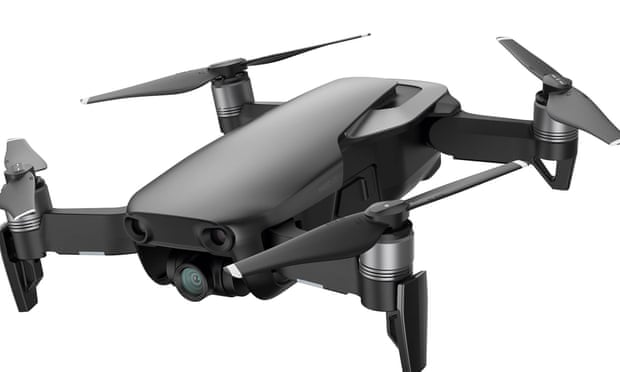

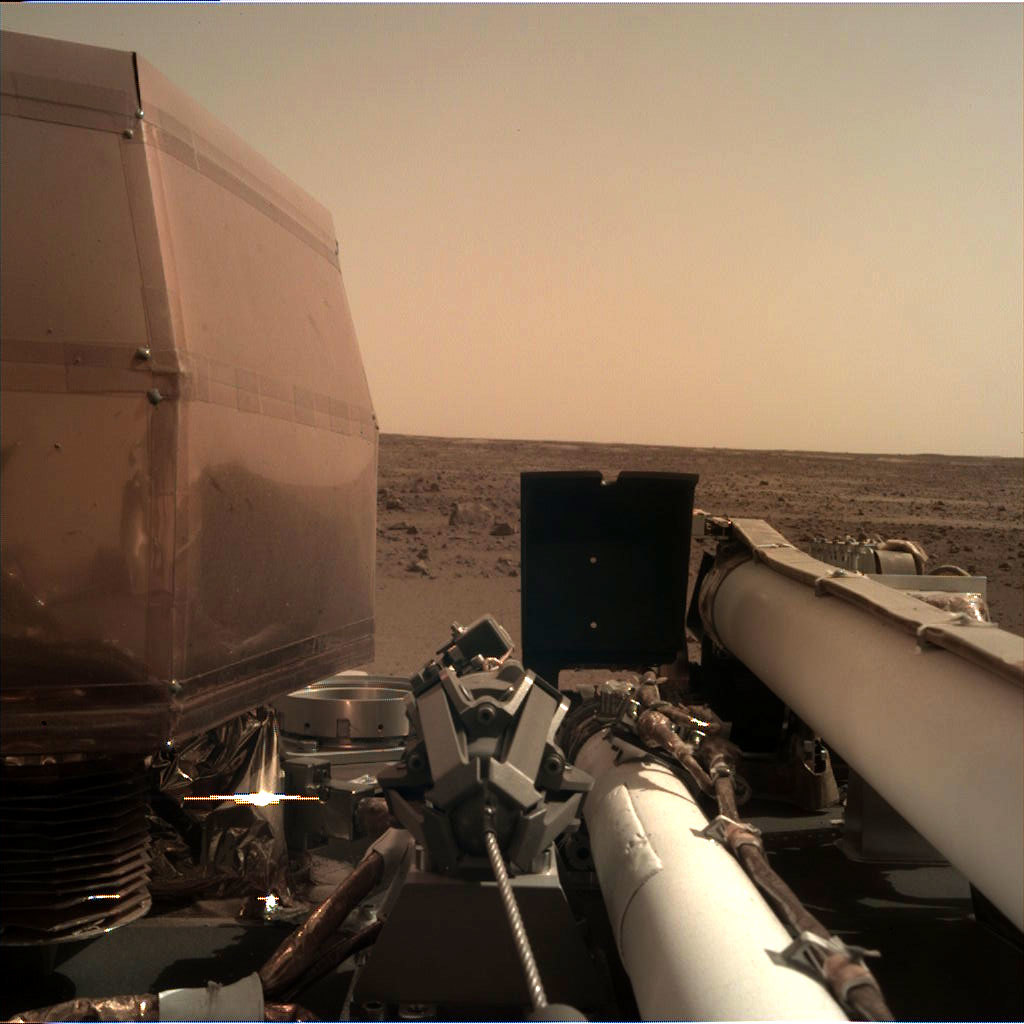

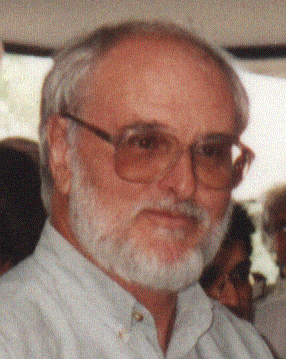
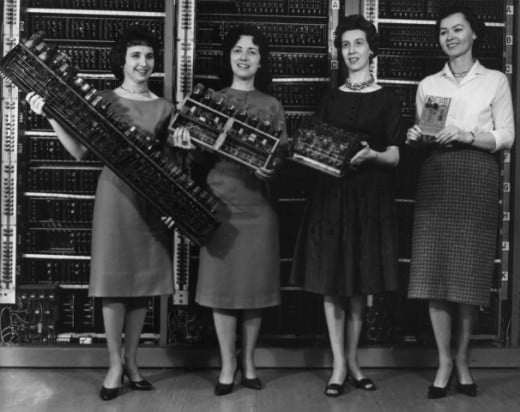
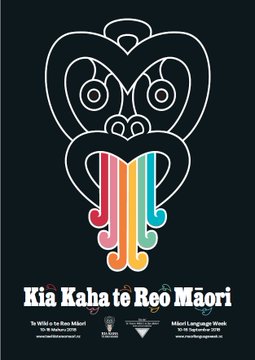






/cdn.vox-cdn.com/uploads/chorus_image/image/57581601/gallery_8.0.jpg)










